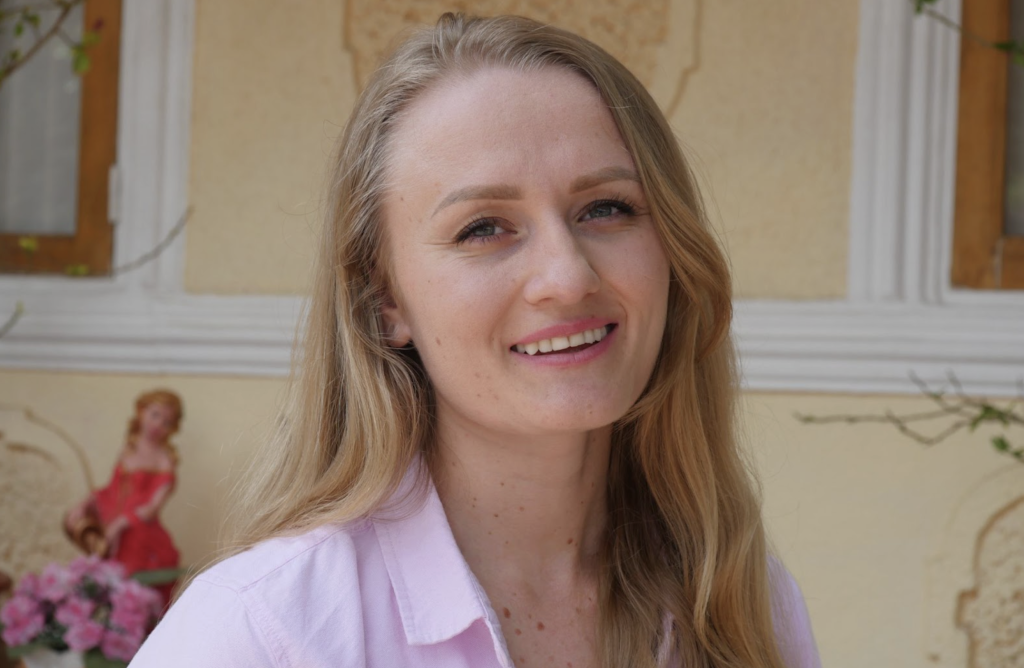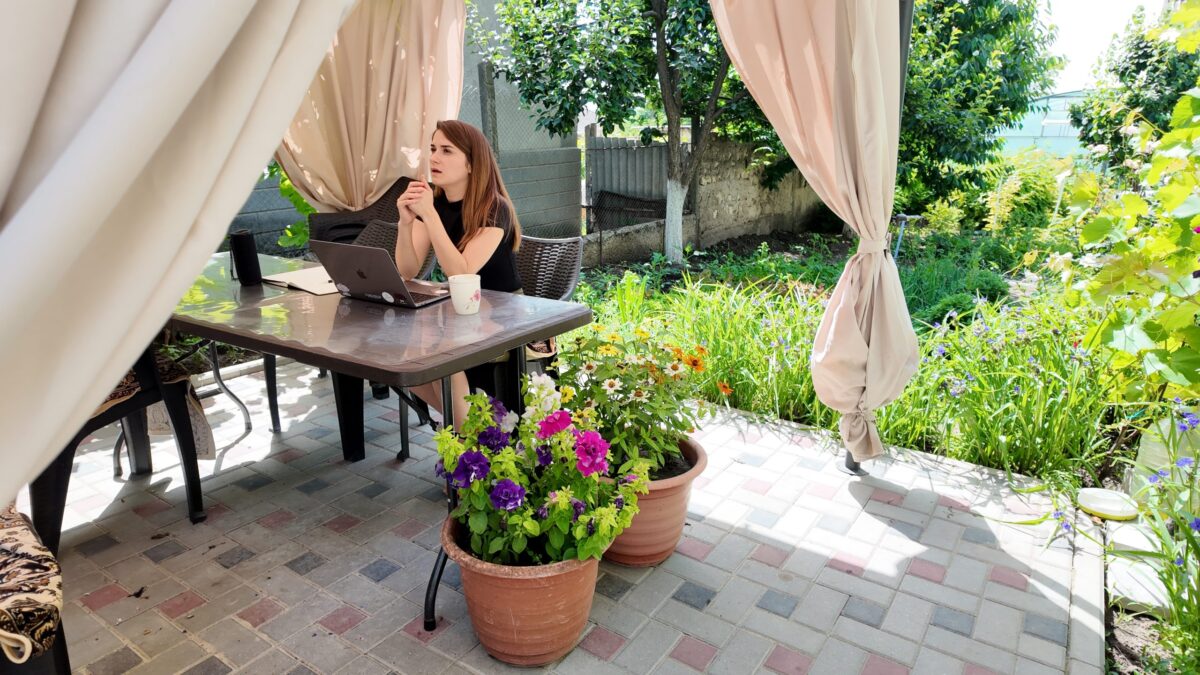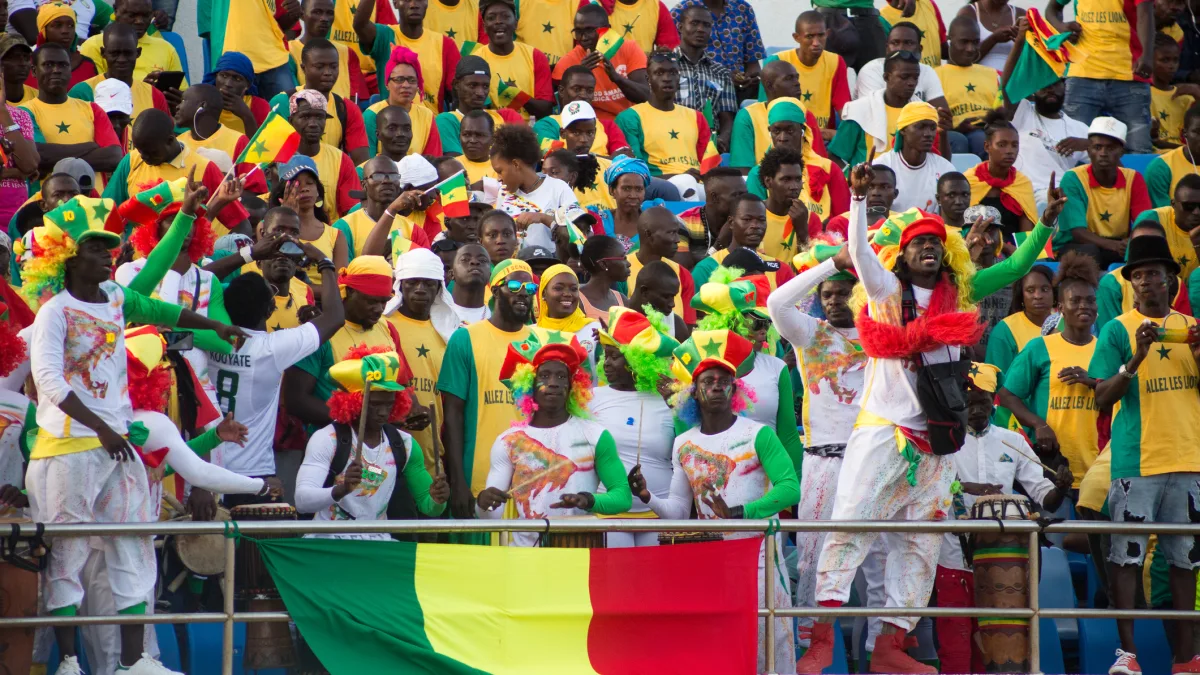The start-up world can be competitive. Entrepreneurs are searching for innovative and disruptive ideas to take over the world. But can you innovate and disrupt in a traditional, quiet place? Do you need to be in Silicon Valley or London to ‘make it’?
We met two big dreamers in small towns to find out how they keep their minds sharp.
Viorica Vanica, 30 (pictured above), proudly rolls out a broad sheet of paper on her bed. It has her steps for a happy life on it. In ten years, she wants every eighth person to use the self-therapy platform Selftalk, which she and her co-founder Elena Oprea, 27, are working on. Her plan states that she needs to stay fit and authentic.
A rooster crows in the garden. Rainwater sits in the buckets, waiting to be poured on cucumbers. Vanica lives in a small Moldovan town. One of the biggest attractions is a nearby goat farm. Most people here dream about getting married or a promotion, not changing the world.
But only last year, her home address was in San Mateo, in the Bay Area. She won investments and spoke to the most ambitious people in the world. Once, she drove a roofless car by the beach—a long-time dream. People would take 4am flights just to hear her speak.
Now, there is a lot of silence. Vanica keeps the music on in her earplugs when she works. “It keeps me focused,” she explains. Cold morning showers are her daily mental pinches. She takes long walks in the evenings to clear her thinking.
Sometimes, her co-founder comes to visit. Oprea also moved back to Moldova, to her childhood village, Lozova, an hour’s drive from the capital Chișinău.
Oprea organised workshops and public events in Silicon Valley to discuss mental health. Here, she is the first one to bring the topic up. She has movie nights with her relatives. Here, she couldn’t go for a jog. Everyone would judge her for running aimlessly. Villagers don’t jog. They walk to the field to work.
Being back home makes you confront things. “When my family argues, I just tell myself—this is how they express their anger,” she says. “If something triggers me, I have to deal with it.” She intervenes less now. And tries to accept her family as they are.
In Silicon Valley, much of Vanica and Oprea’s time went into driving, finding park spaces, and ensuring nobody would break into their car. Here, their moms bring them food. Oprea’s mom brings food for us, too. The whole table is covered with plates—jam, pancakes, chicken soup—about five different dishes for a “quick bite”. When we leave, she packs us waffles, and cherries she picked from the garden. Most food here is grown or raised by people themselves, including the chicken.
Looking for peace
“To start, all you need is access to the internet,” Oprea says. Their company, Selftalk, makes professional therapy available on the phone for anyone. In San Francisco, they were selected to be part of the Draper Accelerator. They received an angel investment of about 178,000 euros and a grant of 60,000 euros from the UK government. They were chosen to participate in Tim Draper’s pre-accelerator programme, Hero Training.
Right now, Oprea and Vanica are looking for the right match between what they want to create and what the market needs. They are testing sales channels and interviewing customers. Most of the work is done on their laptops. Oprea: “It could be done in any part of rural Moldova.”
They are not the only ones dreaming big in a small place. Zoho founder a tech billionaire Sridhar Vembu moved from Silicon Valley to his village in India. American entrepreneur Brent Underwood moved to a ghost town. There are many examples.

“I was looking for peace all around the world,” Oprea explains. “The peace I needed to think clearly about the strategy of the start-up. And I found it back home.”
When Oprea and Vanica were still in Silicon Valley, they refused a clause one of their investors wanted to add to the contract. That decision left them without money and pushed them to cut costs.
The decision wasn’t easy, but they quickly realised that moving back to Moldova had some perks. They could be closer to their developer team. In small Moldova, they stood out the minute they landed. At one of Moldova’s start-up summits, they met Moldova’s president, Maia Sandu, and handed her the book they had written.
Moldova has the youngest start-up scene in Europe. Things are only taking off slowly. Many people still live in villages, but they, too, can dream big.
Watch Viorica Vanica explain her daily routine here, and watch Elena Oprea explain why working in a village gives her an advantage here.







